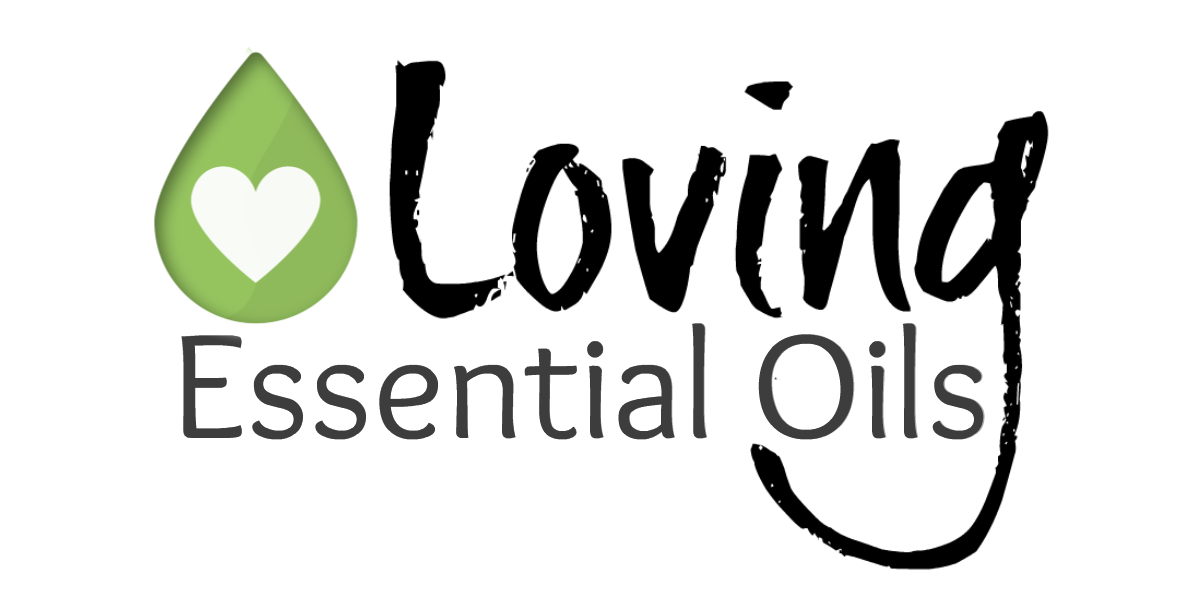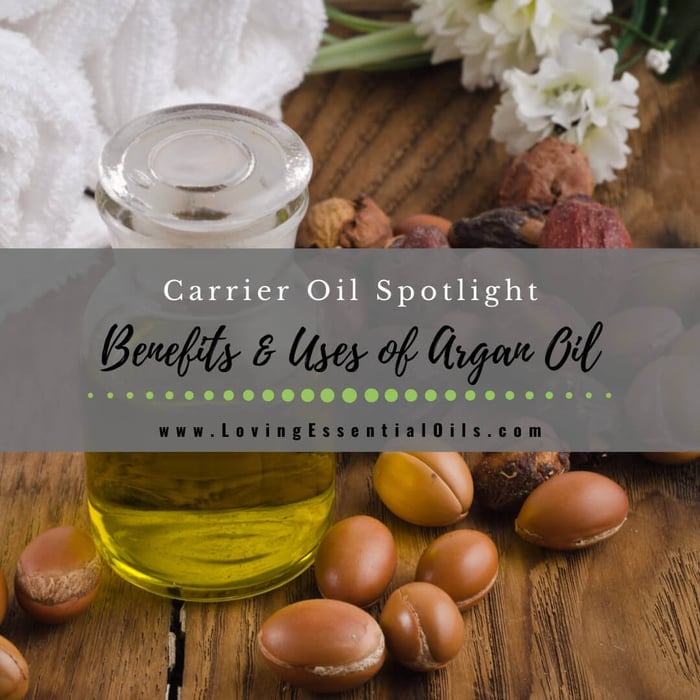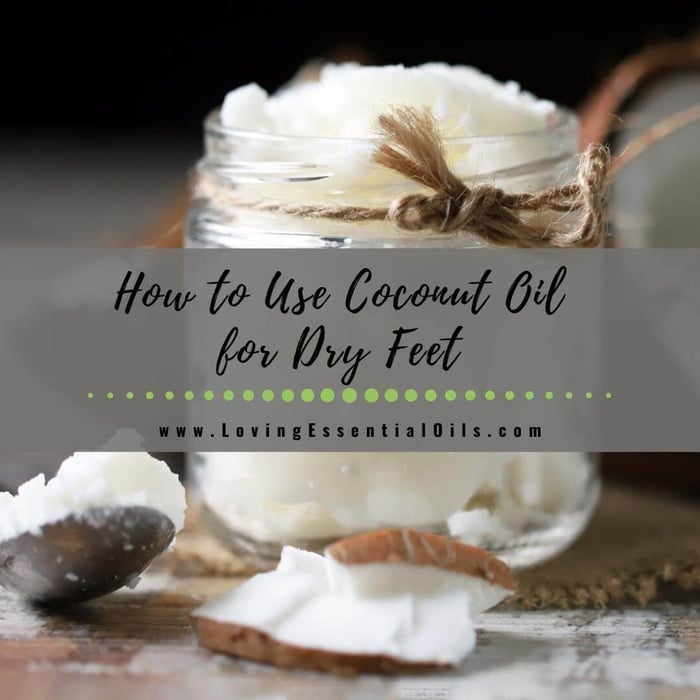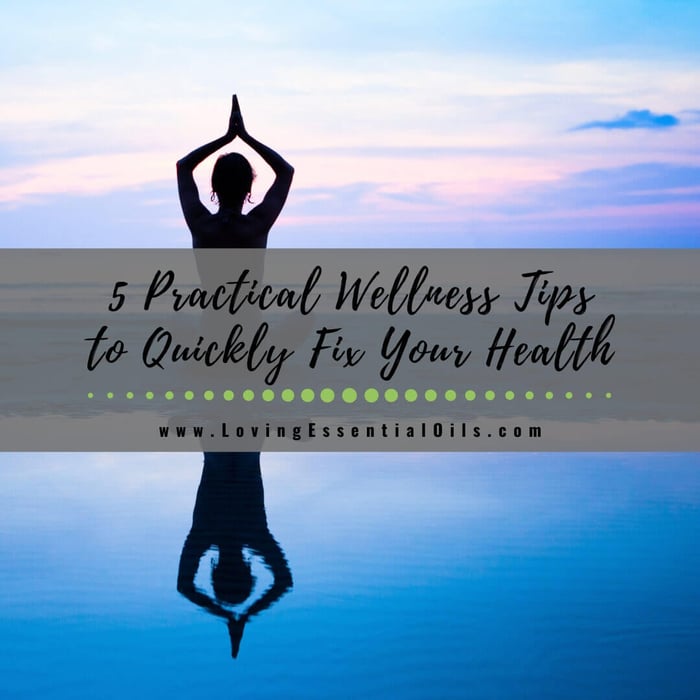Are you familiar with the benefits of argan oil for skin? With the nickname "liquid gold", you better believe that this carrier oil is a must-have for all-natural skincare. Let argan oil restore and repair your skin without clogging your pores with this versatile vegetable oil.
Find out the what Argan Oil is, the benefits of using argan oil for skin care, and ways that it is frequently used. Plus, DIY recipes are included too!
What Is Argan Oil?
Argan oil is obtained from the kernels of the Argan tree, which grows in Morocco. Through cold pressing, these kernels produce a rich golden yellow color oil. The oil has a nutty aroma.
High levels of vitamin E, antioxidants, and essential fatty acids make it perfect for all skin types. It has been cherished for its cosmetic value and healing properties for a long time.

Argan Carrier Oil Spotlight
| Botanical Name | Argania spinosa |
| Skin Type | Suitable for most skin types |
| Comedogenic Rating | 0 |
| Shelf Life | Pure argan oil will last for at least 2 years. Store it at room temperature. |
| Consistency & Absorption | Smooth, silky, and absorbs quickly into the skin. |
Therapeutic Properties of Argan Carrier Oil
- Antioxidant
- Reconstructing
- Softening
- Toning
- Regenerative
- Protective
Need Argan Oil? Look for an oil that is 100% pure, cold-pressed Argan oil. Here is are a few brands we recommend:
Does Argan Oil Benefit the Skin?
Argan oil benefits the skin in many ways. It is full of essential fatty acids, vitamins, and minerals that moisturize, soften, and protect your skin.
This plant oil has high levels of vitamin E, essential fatty acids, and antioxidant making is a wonderful nourishing oil to use on skin. Argan oil can be used to fade scars, smooth out the skin’s texture, and to treat acne.
Benefits of Argan Oil for Skin & How to Use it
This fabulous skin-friendly oil can be used 100% in body and facial oils. It also a popular carrier oil for essential oils and aromatherapy. It can leave the skin feeling smooth and soft after every application.
1. Support Aging Skin
Argan oil promotes cellular regeneration which is vital for aging skin. Use in facial serum for reducing fine lines and wrinkles. It leaves the skin feeling firmer. Its healing properties help to eliminate stretch marks, age spots, blemishes, and scars.
Uses: Add 1 drop of lavender oil and 2 drops of frankincense essential oil to a roller bottle. Fill the rest with argan oil and place rollerball on. Shake to blend. Apply under eyes, to face, and onto neck to help maintain a youthful, glowing appearance.
2. Reduce Irritation, Itching, and Redness
This anti-inflammatory oil helps to balance the skin and reduce inflammation, especially around pimples and acne. It can soothe skin infections, sunburns, and rashes. It is great for all skin types thanks to its ability to regulate sebum levels. Use on sensitive skin and even acne-prone skin.
Uses: Apply to legs after shaving to nourish, soothe, and soften the skin. It has wound healing properties as well. Works great in assisting with nicks and scratches that shaving may leave behind.
3. Soften and Hydrate Dry Skin
Argan makes a terrific carrier oil for dry skin. It can be used in massage oils. Read more about essential oils for dry skin here.
Uses: Keep the skin hydrated by applying Argan oil after taking a shower to maintain soft skin for the rest of the day.
4. Improve Brittle Nails and Rough Cuticles
The softening actions of Argan Oil are excellent in making brittle nails and rough cuticles. Also effective for dry and cracked hands more soft and supple. It hydrates the skin while adding protection and long-lasting moisture to it.
Uses: Warm a small amount of argan oil in palms, then massage into the hands, taking extra care on your cuticles and nails.
5. Moisturize Lips
Argan oil can be used to hydrate and soften lips. Its high Vitamin E and fatty acid content make it the ideal product to moisturize lips naturally. It is a great natural moisturizer because it is non-greasy and absorbs easily.
Uses: Apply a light layer to lips before bedtime to aid healing and repair lip overnight.
Argan Oil for Hair
The nutritional properties of argan oil make it a popular choice for all-natural hair care. Commonly used to tame frizz, moisturize, and add shine. For dry damaged hair, argan oil can act as a conditioner.
Used it as a DIY styling agent for more manageable locks. It leaves a non-greasy feel on the hair while giving it body.
Let argan oil add a healthy shine to any hairstyle. This oil can be added to your daily routine after blow-drying. Simply rub a few drops of argan oil over freshly washed hair to improve the look, tame flyaways, and control frizziness.
This beneficial oil can be used on the roots and scalp to soothe dryness and reduce dandruff. It can also promote hair growth and improve thickness. Rub a small amount of argan oil in the palms, then comb your fingers through your hair to apply.
DIY Argan Oil Recipes
Get your DIY on with these argan oil and essential oil recipes to beautify your skin and look radiant.
Argan Facial Moisturizer |
Directions: Add all recipe ingredients to the dropper bottle. Shake to blend together, use on the face after washing. |
Radiant Skin Body Oil |
Directions: Add all recipe ingredients to the glass bottle. Shake to blend together, use on your body, especially nice after showering or before bedtime. |
Nourished Nails Roller Blend |
Directions: Add all recipe ingredients to the glass bottle. Shake to blend together, use on your body, especially nice after showering or before bedtime. |
Under Eye Serum |
Directions: Add all recipe ingredients to the glass bottle. Shake to blend. Apply under eyes, to face, and onto neck to help maintain a youthful, glowing appearance. |
How often should argan oil be applied to skin?
Argan oil can be used as a daily moisturizer for the skin and should be applied at least once a day, preferably in the morning. It can also be used as a night cream, applied before bedtime.
For those with oily skin, it is best to apply argan oil once or twice a week, depending on the individual's skin type and condition. For those with dry skin, it is best to apply argan oil two to three times a week.
How can argan oil be used to treat skin conditions?
Argan oil is rich in essential fatty acids, antioxidants, and vitamins, making it a popular choice for treating a variety of skin conditions. It is most commonly used to treat dry skin, eczema, and psoriasis. It can be applied directly to the skin or added to a blend with other carrier oils such as jojoba oil or coconut oil.
Is argan oil suitable for all skin types?
Yes, argan oil is suitable for all skin types. Argan oil is a natural, plant-based oil that is rich in antioxidants, fatty acids, and vitamins. It is known for its anti-aging and moisturizing properties, and it is also an effective treatment for acne, eczema, and psoriasis.
The beauty of oil is that it is a light oil that is easily absorbed into the skin, making it suitable for all skin types. It can be used to nourish, hydrate, and protect the skin, helping to create a beautiful, healthy complexion.
Can I use argan oil for sensitive skin?
Absolutely! Argan oil is an incredibly versatile oil that can be used for all skin types, including sensitive skin. It is packed with antioxidants and essential fatty acids, which help to nourish and protect the skin.
It is also rich in vitamin E, an antioxidant that helps to protect skin cells from damage caused by free radicals. Vitamin E also helps to keep skin hydrated, which can help to reduce the appearance of wrinkles and other signs of aging.
Final Thoughts on Argan oil Benefits for the Skin
Skin care is an important part of overall health, and using argan oil as part of a regular skincare routine can help to nourish and protect the skin. It is easily absorbed and provides a light barrier that helps to lock in moisture and keep skin hydrated.
Carrier Oil Detailed Guide
Get our Complete List of Carrier Oils Detailed Guide for free! This guide includes 50 Carrier Oils complete with description, botanical name, skin type oil is best for, shelf life, consistency of oil, and absorption information.
Share on Pinterest







